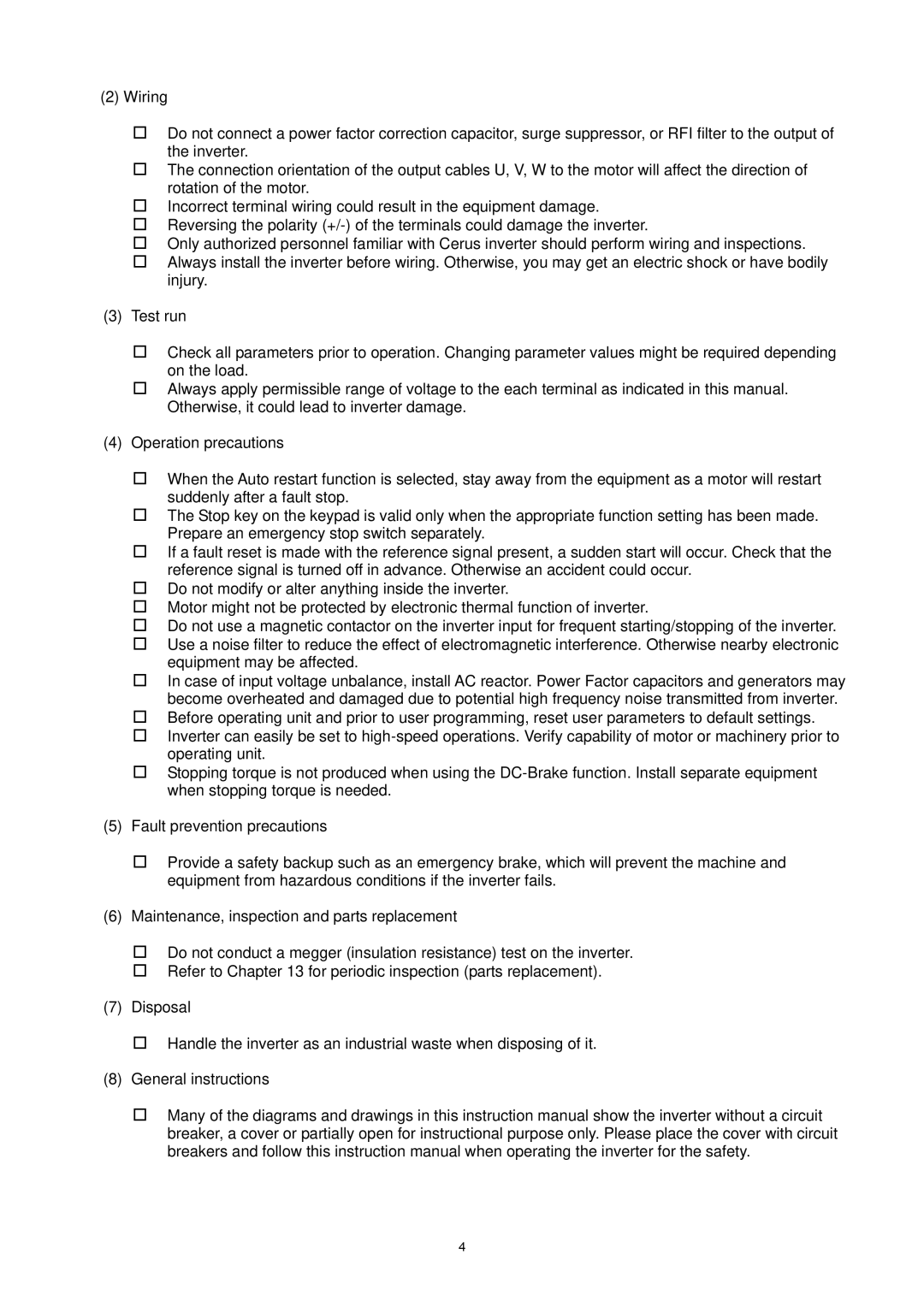(2)Wiring
Do not connect a power factor correction capacitor, surge suppressor, or RFI filter to the output of the inverter.
The connection orientation of the output cables U, V, W to the motor will affect the direction of rotation of the motor.
Incorrect terminal wiring could result in the equipment damage.
Reversing the polarity
Only authorized personnel familiar with Cerus inverter should perform wiring and inspections.
Always install the inverter before wiring. Otherwise, you may get an electric shock or have bodily injury.
(3)Test run
Check all parameters prior to operation. Changing parameter values might be required depending on the load.
Always apply permissible range of voltage to the each terminal as indicated in this manual. Otherwise, it could lead to inverter damage.
(4)Operation precautions
When the Auto restart function is selected, stay away from the equipment as a motor will restart suddenly after a fault stop.
The Stop key on the keypad is valid only when the appropriate function setting has been made. Prepare an emergency stop switch separately.
If a fault reset is made with the reference signal present, a sudden start will occur. Check that the reference signal is turned off in advance. Otherwise an accident could occur.
Do not modify or alter anything inside the inverter.
Motor might not be protected by electronic thermal function of inverter.
Do not use a magnetic contactor on the inverter input for frequent starting/stopping of the inverter.
Use a noise filter to reduce the effect of electromagnetic interference. Otherwise nearby electronic equipment may be affected.
In case of input voltage unbalance, install AC reactor. Power Factor capacitors and generators may become overheated and damaged due to potential high frequency noise transmitted from inverter.
Before operating unit and prior to user programming, reset user parameters to default settings.
Inverter can easily be set to
Stopping torque is not produced when using the
(5)Fault prevention precautions
Provide a safety backup such as an emergency brake, which will prevent the machine and equipment from hazardous conditions if the inverter fails.
(6)Maintenance, inspection and parts replacement
Do not conduct a megger (insulation resistance) test on the inverter.
Refer to Chapter 13 for periodic inspection (parts replacement).
(7)Disposal
Handle the inverter as an industrial waste when disposing of it.
(8)General instructions
Many of the diagrams and drawings in this instruction manual show the inverter without a circuit breaker, a cover or partially open for instructional purpose only. Please place the cover with circuit breakers and follow this instruction manual when operating the inverter for the safety.
4
